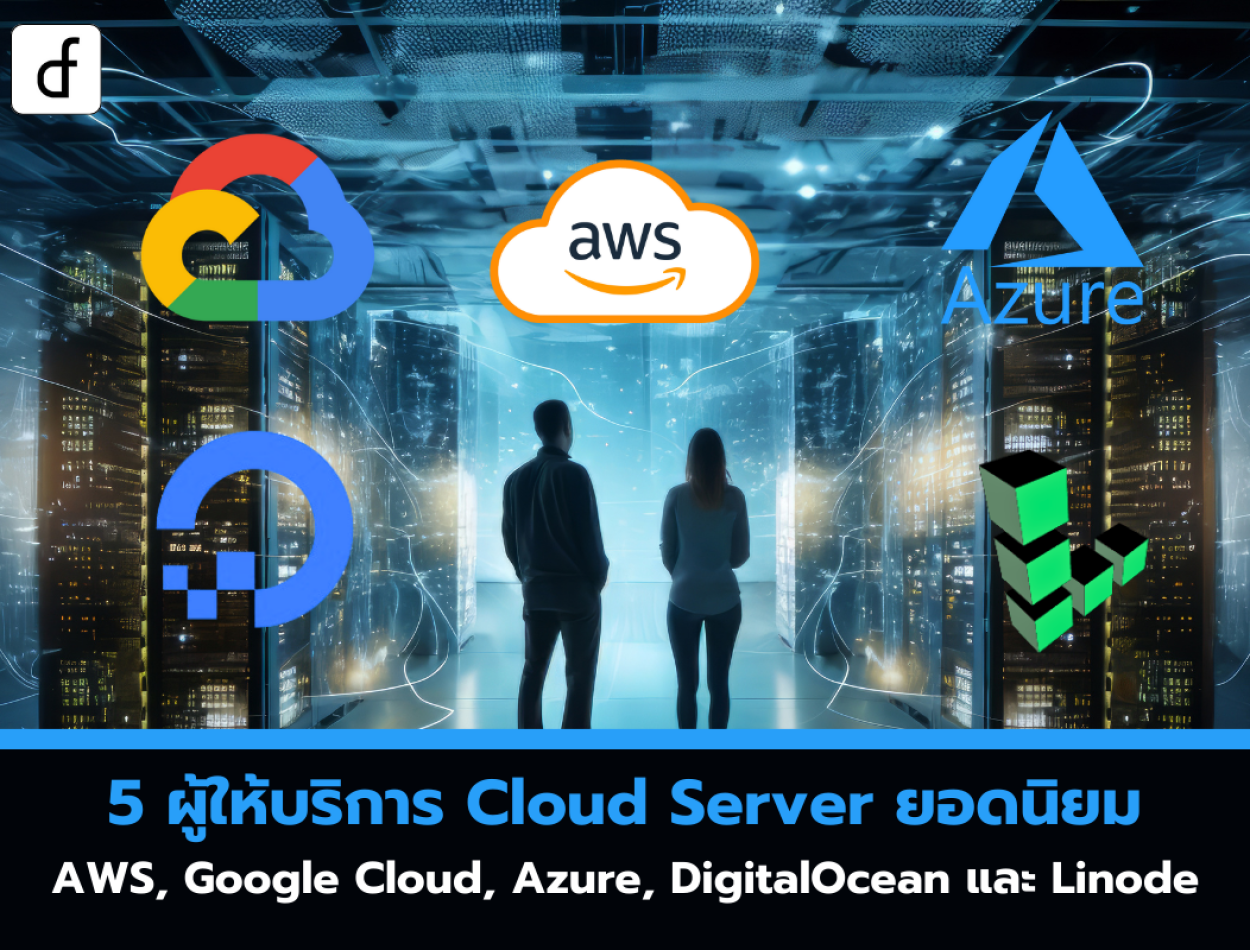
5 Popular Cloud Server Providers: AWS, Google Cloud, Azure, DigitalOcean, and Linode
2025-02-24 02:23:52
Cloud Server has become a crucial infrastructure for digital-age businesses that require flexibility, security, and high performance. Currently, there are many leading Cloud service providers, but this article will discuss the top 5 popular providers: AWS (Amazon Web Services), Google Cloud, Microsoft Azure, DigitalOcean, and Linode.
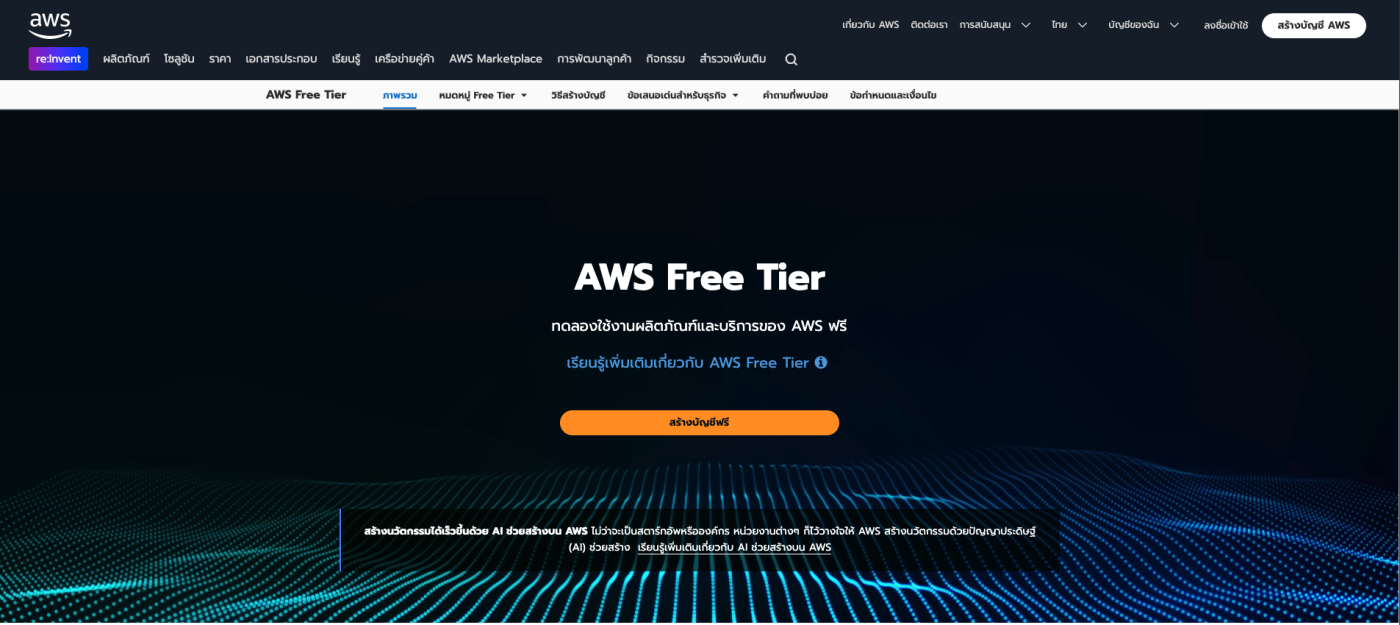
AWS (Amazon Web Services)
AWS is the world's largest cloud service provider, with a comprehensive infrastructure that supports usage at all levels, from startups to large enterprises.
The highlights of AWS
- There are data centers distributed around the world (with the most Availability Zones).
- Services that cover Compute, Storage, Database, AI, IoT, and more.
- Supports enterprise-level usage with high security standards.
- There are tools to help develop and manage the system, such as AWS Lambda (Serverless), EC2, S3, and RDS.
Disadvantages of AWS
- The price may be higher than competitors if there is no good cost management.
- The interface is complex for beginners.
Suitable for
- Large organization
- Application developers looking for a comprehensive solution
- Startups that want to expand their systems flexibly
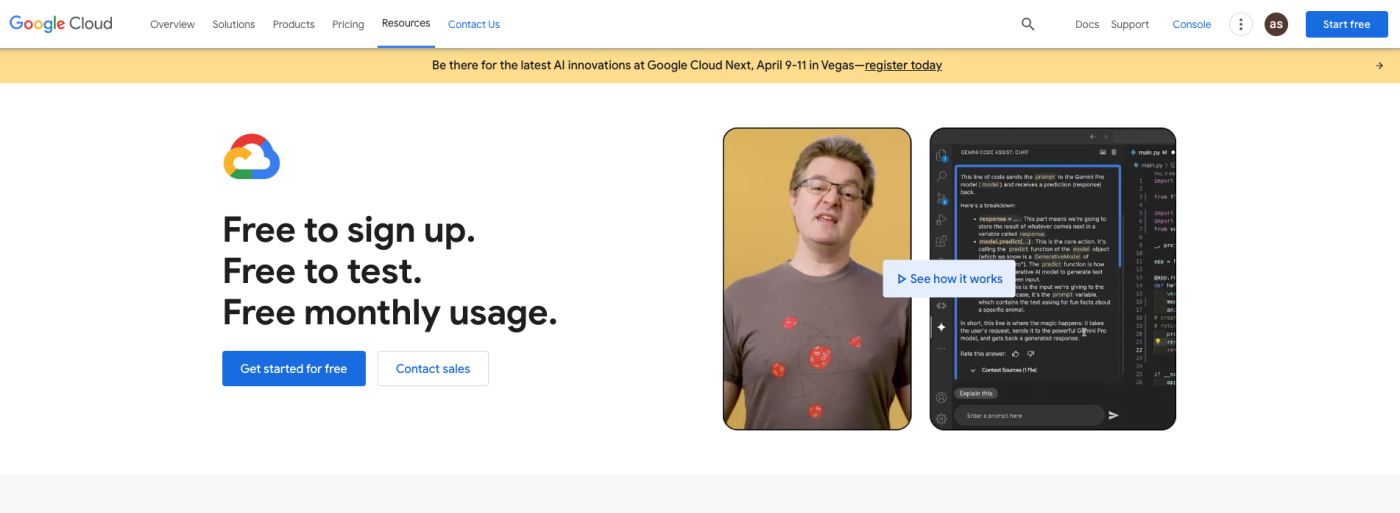
Google Cloud Platform (GCP)
Google Cloud is a Cloud Provider developed by Google, which excels in AI, Machine Learning, and Big Data.
The highlights of Google Cloud
- Fast and stable infrastructure using Google's network
- Outstanding in AI and Big Data with services like TensorFlow, AutoML, and BigQuery.
- Supports Kubernetes and Containers well (Google is the developer of Kubernetes)
- There are Cloud Storage and Compute services that are quite reasonably priced.
Disadvantages of Google Cloud
- Some services are still not as comprehensive as AWS or Azure.
- The community and documentation may not be as extensive as AWS.
Suitable for
- Application developers who want to use AI and Big Data
- Companies that need Kubernetes solutions and container-based applications
- An organization that prioritizes environmental sustainability
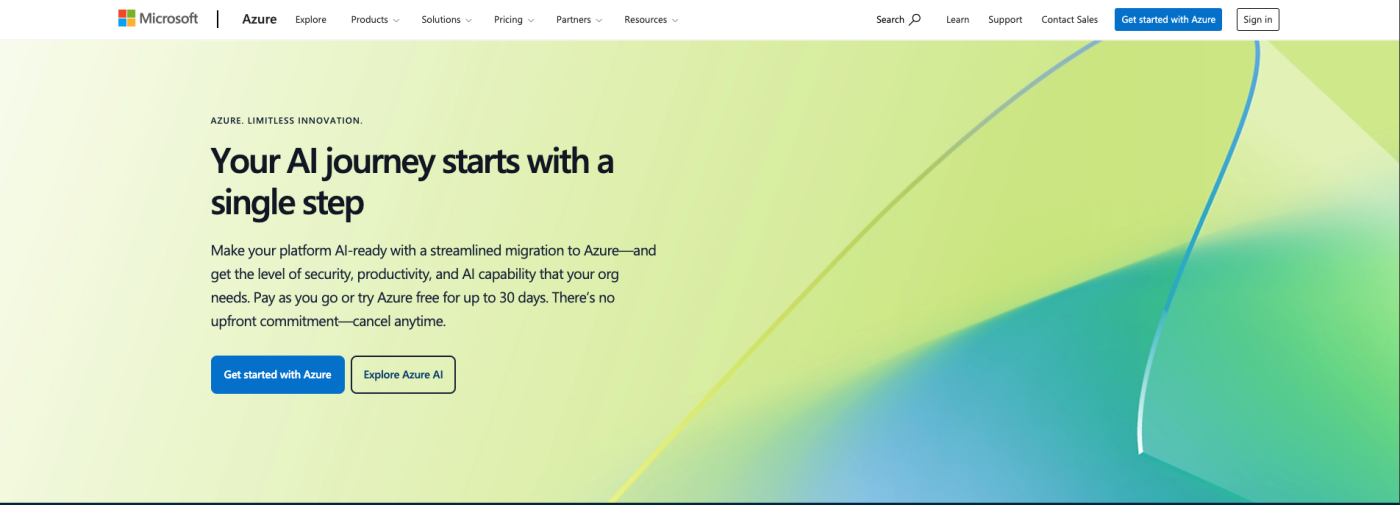
Microsoft Azure
Azure is Microsoft's cloud service that is popular among large organizations, especially businesses that use Microsoft 365 and Windows Server.
The highlights of Azure
- Integrates well with Microsoft products such as Windows Server, Active Directory, SQL Server.
- Supports Hybrid Cloud, making it easy for businesses to integrate Cloud with On-Premises.
- There are enterprise-specific solutions such as IoT, AI, Security, and Compliance.
- There are data centers in several countries, including Thailand.
Disadvantages of Azure
- Learning and usage are quite complex.
- The price may be higher for some services.
Suitable for
- Organizations that primarily use Microsoft systems
- Companies that need Hybrid Cloud solutions
- Agencies that require a cloud system with high security standards
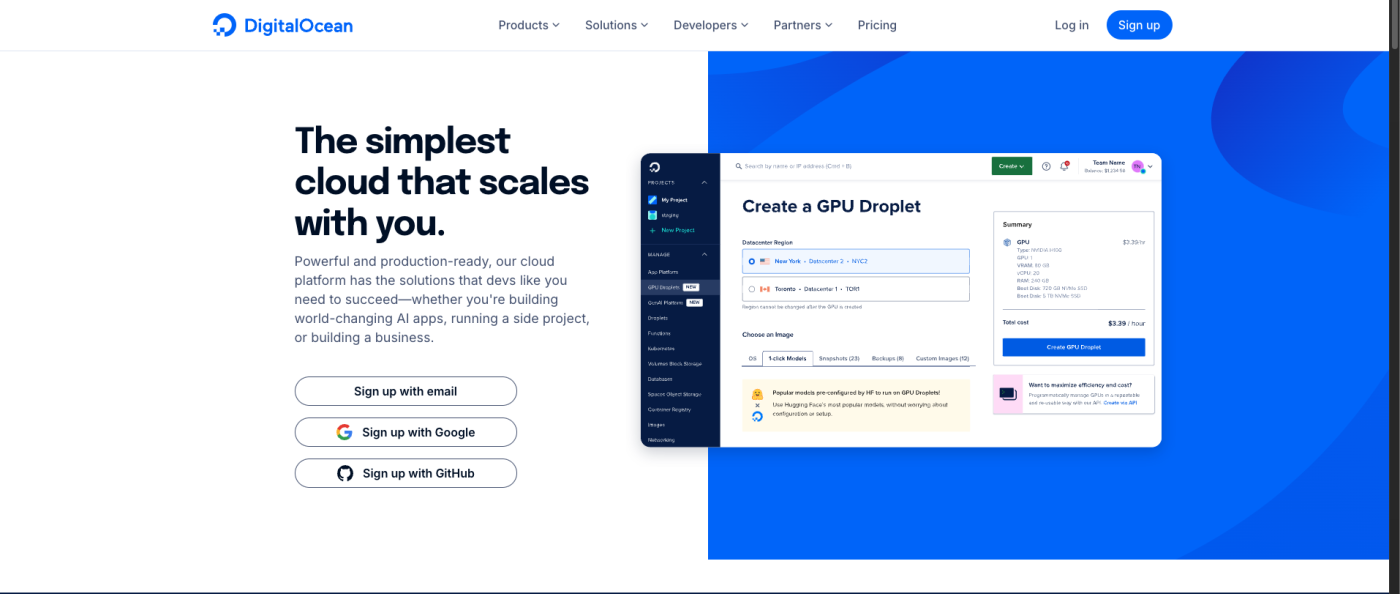
DigitalOcean
DigitalOcean is a Cloud Provider that focuses on simplicity, affordability, and ease of use, making it suitable for developers and startups.
The highlights of DigitalOcean
- The interface is user-friendly and not complicated.
- Cheap and with clear packages
- Supports Kubernetes and Containers well.
- There is a Marketplace for easily installing various applications.
Disadvantages of DigitalOcean
- Has fewer data centers than major providers.
- The service may not be comprehensive for large organizations.
Suitable for
- Independent developers and startups
- Small businesses looking for affordable servers
- Those who want a simple solution without complicated setups.

Linode
Linode is a cloud service provider that focuses on VPS (Virtual Private Server) at an affordable price, suitable for developers and small businesses.
The highlights of Linode
- Cheap and with a value-for-money package
- Easy to use, not complicated.
- Supports VPS and Bare Metal Server
- There is a Backup and Load Balancer system.
Disadvantages of Linode
- The number of data centers is small compared to AWS or Google Cloud.
- The service may not be comprehensive for large organizations.
Suitable for
- Developers and small businesses
- Those who need a high-quality VPS at an affordable price
- Organizations that want to host user-friendly applications on the cloud
Choosing a Cloud Server provider depends on the business's needs. If you require comprehensive services, AWS and Azure are good options. If you need AI and Big Data solutions, Google Cloud is an outstanding choice, while DigitalOcean and Linode are suitable for developers and small businesses looking for affordable and user-friendly Cloud Servers.
Leave a comment :
Recent post
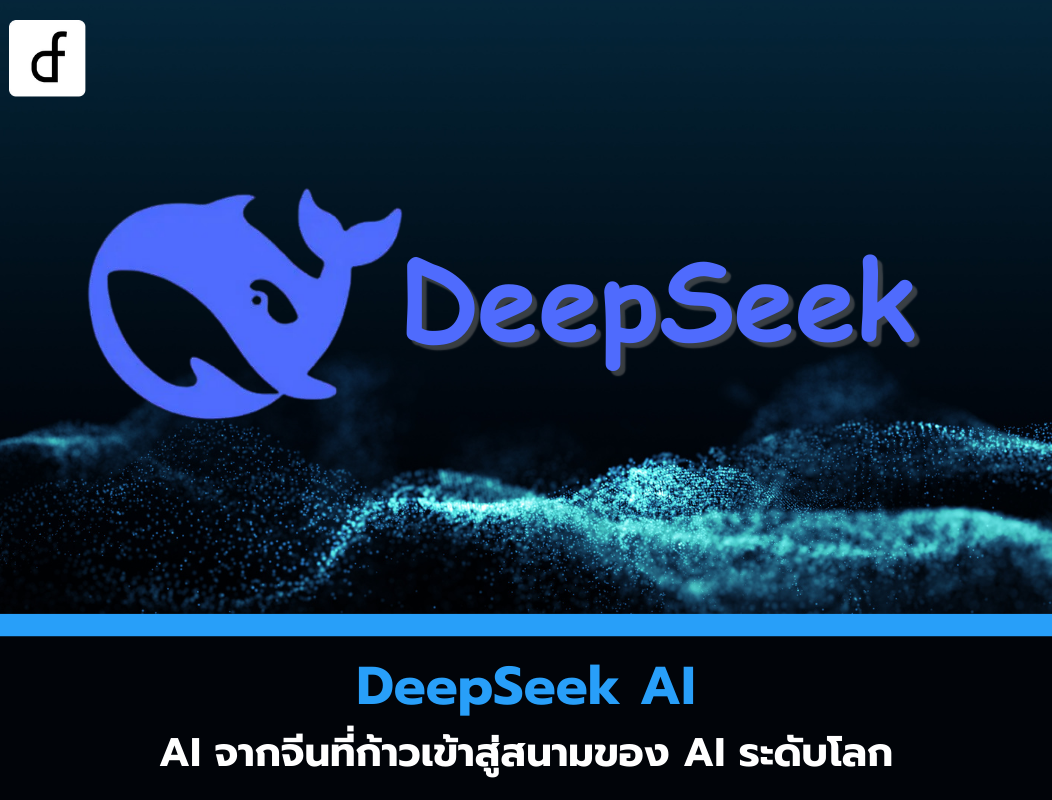
2025-01-10 10:12:01

2024-05-31 03:06:49

2024-05-28 03:09:25
Tagscloud
Other interesting articles
There are many other interesting articles, try selecting them from below.

2024-04-11 02:14:04

2024-09-10 01:27:37

2023-09-28 10:38:48
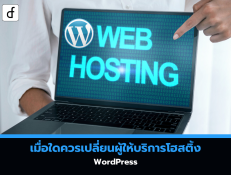
2025-03-06 04:11:40

2023-10-06 05:09:20

2025-03-20 10:42:43

2023-11-16 09:05:17

2024-01-19 10:51:24

